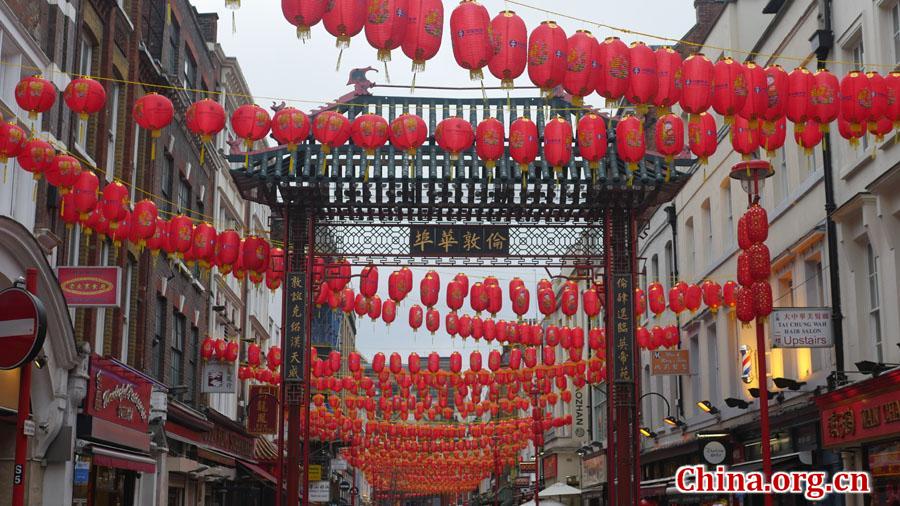Celebrating time without end
- By Earl Bousquet
 0 Comment(s)
0 Comment(s) Print
Print E-mail China.org.cn, February 17, 2018
E-mail China.org.cn, February 17, 2018
China's Spring Festival can be said to be as old as time. Stretching as far back as beyond 1,600 B.C., it predates every other event celebrated in every other known calendar worldwide. Its historicity apart, it is simply the most popular festival for all Chinese everywhere.

Every year, Chinese everywhere want to go back home to spend the Spring Festival with their family, making this lengthy celebration the busiest in all respects: Millions travel using any and all forms of transport possible and available, countless numbers doing any and everything possible to observe that one festival that means everything to all.
Families and neighborhoods, communities and villages, towns and cities, provinces and regions – all Chinese at home and abroad do whichever of all the traditional things to celebrate what custom and tradition have handed down over the ages.
From the first day of the last lunar month of each year to the middle of the first lunar month of the next – and especially during the seven-day holiday now prescribed by the state – it's like the world is put on hold. Yes, the globe turns and time passes just like always, but time itself is spent differently, the emphasis being only on ensuring the family has the best time spent together.
Of course, the New Year is welcomed by everyone every year, everywhere else. In that sense, China's Spring Festival is no different. But the big and inimitable difference is in the extent of the celebration and the depth of the family union and reunion.
Most people elsewhere will be satisfied with ushering-in the New Year wherever they are when it comes. Some will head home and many will wish they could. But Chinese who can will definitely head home and even those who cannot, will dare to try.
The stories told of Chinese heading home for the Spring Festival can fill any heart: Time and distance don't matter, nor the route. Some will lose their way and are gladly helped by others. Grandparents and parents wait with certainty that their offspring will spring into the home from the doorstep for the Spring Festival.
Unlike voyages to the unknown, every traveler has a final destination. Air and sea, rail and road transport is never, ever busier. And at the end of the trip, the best food is shared and enjoyed by all.
On the eve of the New Year and on the day itself, it's as if the entire family is born again, the home as if just built anew, good wishes spelt out loud, bad omens wished and washed away with near certainty.
Everyone wishes good, better and best for all. Children are treated extra special by parents and elders. Everyone seems born again.
Chinese abroad are no different. It's the one day they all come together in like form. The festivity is shorter than back home, but on the day itself not one will be expected or made to do anything else but enjoy the best annual holiday of their lives.
Spring Festival is celebrated better than a birthday or wedding day because it's not just a day. Instead, it's an observance that allows each celebrant a period of time to reflect and project, start afresh and face the New Year with renewed energy and enthusiasm.
It's understandably difficult for non-Chinese to understand why Chinese place so much importance on what most others will regard as just another year in the continuing and unending cycle of time.
Christmas is perhaps the closest comparison, as it is celebrated worldwide, even by non-Christians, as an annual holiday season when entire societies are geared for that one period that's celebrated even more widely than the start of a new year.
But the Spring Festival does not celebrate one god. Instead, it originates from sacrifices to all gods and ancestors, of all names and with no names, from times unknown that no one can remember.
All of China's 56 ethnic groups celebrate the same festival with varying customs, each attaching the same importance, wherever they are, however they can.
There's no one history book telling all about China's Spring Festival, yet all Chinese know how best each can and will celebrate that one festivity that means everything to all.
It's a veritable Chinese showcase to the world of how all the people of an entire nation can one by one and family by family, forget their troubles, set aside all problems and simply pay homage to all their early gods and ancestors, known and unknown, past and present, in equal measure.
Verily, the Chinese Spring Festival has no calendar start – and no end in sight.
Like a world without end, it always was – and always will be.
Year after year, from time immemorial to time everlasting, that's just the way it is!
Earl Bousquet is a contributor to china.org.cn, editor-at-large of The Diplomatic Courier and author of an online regional newspaper column entitled Chronicles of a Chronic Caribbean Chronicler.
Opinion articles reflect the views of their authors, not necessarily those of China.org.cn.






Go to Forum >>0 Comment(s)